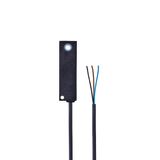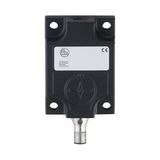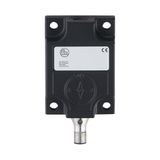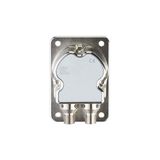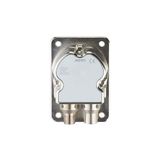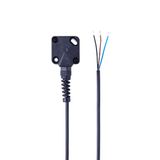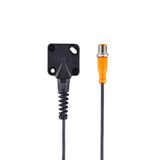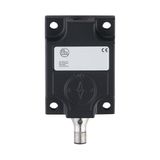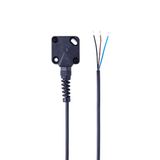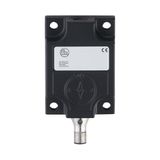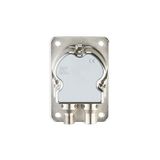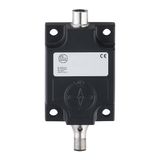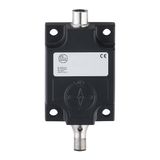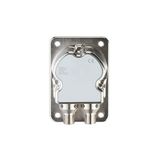IFM electronic Measuring instruments
R360/INCLINATION SWITCH
INC-M1M360C-1-KG/US-V
INC-M1M360J-1-KG/US-V
INC-M2M360ABIAKG/US
INC-M2M360C -KG/US
R360/INCLINOMETER/0-10V
R360/INCLINOMETER/4-20mA/II
INC-M2M180J-1-KG/US-H
INC-M2M360J-KG/US
R360/INCLINOMETER/0,5-4,5
INC-M2M180C-1-KG/US-H
INC-M2M090C -KG/US
INC-M2M180C-2-KG/US-H
INC-M1M360C-2-KG/US-V
INC-M2M090ABIAKG/US
ifm electronic measuring instruments – Precision Tools for Industrial Monitoring
When you’re sourcing industrial measurement equipment — flow meters, multimeters, test instruments and data loggers — your choice sets the tone for system reliability, accuracy and future proofing. ifm electronic measuring instruments stand out because they combine rugged industrial performance, modern connectivity (like IO-Link) and real serviceability. In practice, you’ll find them in process skid builds, utility metering, OEM machine panels and control rooms — anywhere measurement is mission-critical.
Flow meters and measuring instruments for industrial use
In this category you’ll see terms like “ifm flow meters”, “ifm measuring instruments”, “ifm multimeters”, “ifm test instruments”, “ifm data loggers”. What that really translates to on the panel or skid is:
- High-accuracy flow measurement devices using magnetic-inductive, ultrasonic, vortex or thermal technologies. For example, ifm’s SM magmeter family offers volumetric flow, totalisation and temperature in a compact stainless steel body.
- Instruments that capture and log data: modern flow sensors from ifm often include digital outputs, data-logging capacity, and IO-Link connectivity so the sensor data feeds directly into SCADA or MES systems.
- Multimeters or test instruments (though less dominant in the catalog) that support commissioning, calibration or maintenance tasks — making this category broader than just “flow”.
From experience the procurement team should treat this as a measurement subsystem: the sensor + driver/interface + data integration + maintenance plan.
Key specification & procurement considerations for measuring instruments
Here are the real-world factors you’ll want to check when specifying measuring instruments for industrial environments:
- Measurement principle & suitable medium: A magnetic-inductive meter works only with conductive liquids (≥ 20 µS/cm), while ultrasonic or thermal versions fit oils, gases or non-conductive fluids. For example the SM series may measure water, while ultrasonic SU types support non-conductive.
- Range, accuracy and totalisation: Does the meter capture the flow rate, total quantity, and temperature? ifm states their magmeters measure all three simultaneously.
- Connectivity and data integration: If you’re installing in a modern automation environment, a measuring instrument with IO-Link or digital output simplifies trending and remote monitoring.
- Installation, mounting and environment: Consider pipe size, mounting run-up/straight length, medium temperature, pressure drop and ambient conditions. The wrong meter type results in poor readings or field return. For example vortex types require straight runs.
- Spare stock and variant control: For procurement, standardise on one measurement family per application (e.g., one flow meter family, one data-logger family) so maintenance teams are familiar and spares are streamlined.
As a result, in practice you’ll usually see less downtime when the measurement devices arrive pre-specified, calibrated and compatible with your system architecture.
Procurement logic for wholesale orders of ifm measuring instruments
If you’re ordering measuring instruments in bulk for machines, plants or multiple sites, apply this structure:
- Define core instrument types: Choose one family for flow measurement (e.g., ifm SM magmeters), one family for logging/test instruments, and one accessory family (mounting kits, cables).
- Standardise model variants and configuration options: For example pick standard pipe size range, accuracy class and connectivity (IO-Link vs analog) across your sites to reduce variant SKUs.
- Order spares and consumables: Instruments may last long lives, but connectors, cables and accessories may wear. Plan spare modules (~10%) for replacements.
- Align packaging and logistics: If installing across 20 machines, order in logical lots (e.g., one box per 5 machines) so deployment is streamlined.
- Ensure documentation and calibration support: For measuring instruments you’ll need datasheets, calibration certificates (if required), IO-Link configuration files.
By applying this logic you reduce procurement complexity, speed up installation and simplify maintenance life-cycle.
Why ifm measuring instruments are smart for professional applications
When you run measurement systems across multiple plants or lines, consistency matters. By selecting ifm for your measuring instruments you get: industrial-grade reliability, full control over measurement inputs, unified supplier for sensors/test instruments, fewer compatibility issues. Installers spend less time adapting to different instrument types; maintenance teams deal with a consistent spare-stock. Procurement teams benefit from standardised part numbers and vendor relationships. Over time this translates into fewer service disruptions, better data capture and stronger system lifecycles.
Wholesale supply partner – Bank of Lamps
Bank of Lamps distributes the full ifm measuring instruments portfolio — flow meters, multimeters, test instruments, data loggers and associated accessories — from our warehouse in Latvia. We support procurement managers, OEM machine-builders, automation contractors and maintenance departments across the UK, Germany, Netherlands, Baltic States, France, Spain and Belgium.
Why work with us:
- Flexible bulk quantities — from single instrument kits to site-wide deployment packages
- Verified brand-authentic ifm stock — no grey-imports, full accessory compatibility
- Centralised EU logistics hub reducing customs/shipping complexity across Europe
- Stable wholesale pricing for framework contracts and repeat orders
- Full batch traceability, calibration documentation and B2B support for specification, stock-planning and delivery scheduling
When you collaborate with Bank of Lamps, you’re not just ordering measuring instruments — you’re aligning your measurement infrastructure with a supply chain designed for scale, reliability and controlled procurement.
